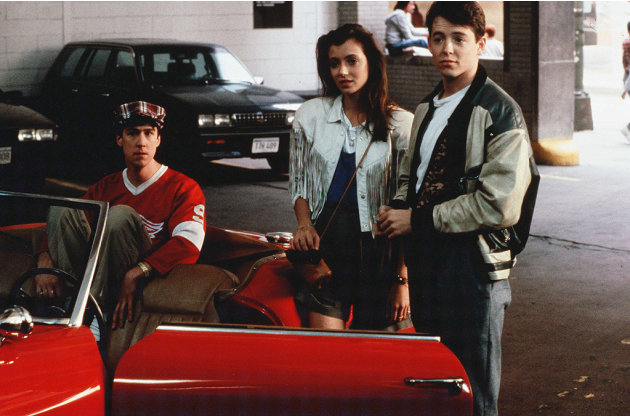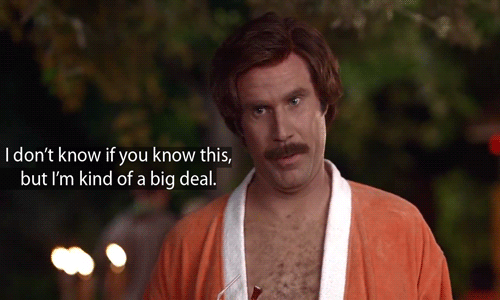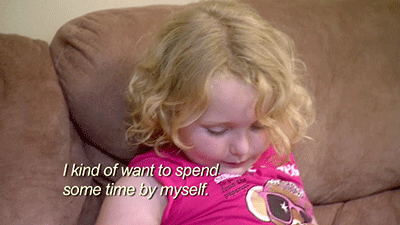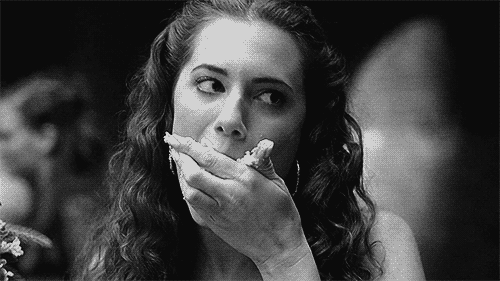Although the Twittersphere is pretty much a rules-free zone, there are still some major dos and don’ts (mainly don’ts) to keep in mind if you don’t want to make all of your followers hate you. Are you guilty of one of these common Twitter faux pas? If so, maybe think about saving that 3 a.m. drunk tweet to your drafts instead!
1. Your alcohol consumption
“Woke up on the bathroom floor this morning. It was one of those nights! #hungover”
If you got totally wasted last night and you didn’t tweet about it, did you really get wasted? Constantly tweeting about your alcohol consumption is one of the biggest Twitter faux pas, and frankly, we’ve had enough of it. Let’s be real, those “I-have-no-idea-what-happened-last-night” tweets are only acceptable during the first few weekends of college. After that, it just seems like you’re trying way too hard to convince people that you have an enviable social life.
2. Drama with your boyfriend
“I’m so sick of you disappointing me. Seriously, why do I even try?? #imdone”
We assure you, the fight you’re having with your boyfriend is not the VMAs—meaning it doesn’t need to be live-tweeted. Admittedly, watching other people’s drama unfold via social media can be pretty entertaining, but there are only so many passive-aggressive subtweets that we can take.
3. Your workout
“Headed to the gym again today! #feelingmotivated #getfit”
We get it; you exercise. Really, it’s great that you’re into being fit and healthy, but on the list of things we care about, your exercise regime falls somewhere between calculus and our best friend’s brother’s dog’s horoscope. You enjoy your 7 a.m. ab workout, and we’ll enjoy sleeping in.
4. Everything you eat
“Just made myself the best breakfast. Blueberry pancakes, fruit and yogurt, yum! #nomnomnom”
Although you may feel the need to describe how amazing your panini was, keep in mind that the details of your lunch are only slightly more exciting to read than, say, the periodic table or a Stephanie Meyer novel.
5. Your pets
“Aww, look how cute my cat is when she sleeps! #meow #obsessed”
We know you think your pet is the cutest thing ever, but the rest of us would prefer to not see multiple pics of your cat or hear about Fido’s latest antics. And if you’re one of those people who have a Twitter account specifically for your furry friend, please reconsider your life decisions (psst… animals can’t talk).
6. Useless info about your day
“Sitting in my comm class, can’t wait for it to be over so I can get lunch! #hungry”
Twitter makes it incredibly easy to share what you’re doing, where you are and who you’re with at every moment of every day – and that can be annoying for those of us who really don’t care that you just took a shower or went out to lunch with a friend. A little self-regulation never hurt anybody!
7. TV show spoilers
“Still trying to get over the fact that Walt died at the end of Breaking Bad. #spoileralert”
Tweeting a TV show spoiler is equivalent to being that guy in the theater who shouts out what’s going to happen before the end of the movie. You don’t want to be that person. Please exhibit some common courtesy and don’t tweet key plot points to House of Cards.
8. Excessive hashags and emojis
“Too excited for this weekend!! JJ ;) <3 #weekend #party #leggo #yolo #cantstopwontstop”
Like most things in life, hashtags and emojis are only okay in moderation. Unless you want your tweet to look like it was written by an overexcited preteen, please keep your emoji use to a minimum (no more than two per tweet, please!) and don’t use more than one or two hashtags. Speaking of which, if we never see the phrase #sorrynotsorry again, it will be too soon.
9. Virtual PDA
“I have the best boyfriend ever! #loveyou #solucky”
Twitter PDA is the virtual equivalent of making out with your boyfriend in between every single class in high school. Don’t be that couple. A cute tweet every now and then is fine, but if your significant other doesn’t know how you feel about him or her without an online declaration of love, you may need to reevaluate your relationship.
10. The weather
“First snow of the year! #snowday”
We appreciate your concern for those of us without windows, but for the rest of the population, your precipitation-related tweets are completely unnecessary. Nobody needs or wants to read 15 identical tweets in a row about how it snowed last night. And just for the record, tweeting about other people tweeting about the weather isn’t any less annoying.
11. Emotional rants
“My alarm didn’t go off, so I was late to class and I look like a mess. Having an 8 a.m. class is the WORST. #FML”
We get it, you’re in a glass case of emotion right now, but do all of your followers really need to read your angry, five-tweet-long rant about the professor you hate or the fact that it snowed again (see number 10)? If you really need to vent, spill it to a friend or write in a journal. Just keep the drama offline.
12. Longwinded personal conversations
“@friendsname OMG wasn’t last night the best night ever? I’m still laughing about that guy at the bar with the shirt lol”
Please don’t force us to scroll through your entire novel-length Twitter conversation, especially when it’s composed of nothing but inside jokes that are irrelevant to the rest of your followers. When you and your besties start reminiscing about that hilarious thing that happened last night, you’re essentially being that loud table at the restaurant. That’s what group text messages are for, people!
13. Humblebrags
“I can’t believe how many guys were hitting on me last night. Like, can you not? #ugh”
What is a humblebrag, you ask? According to Urban Dictionary’s fantastic definition, humblebragging is “Subtly letting others now about how fantastic your life is while undercutting it with a bit of self-effacing humor or ‘woe is me’ gloss.” Seriously, there is nothing worse than a “yay me!” tweet thinly disguised as a complaint. You’re not fooling anyone.
In conclusion, some simple rules to remember are as follows: If everyone else is tweeting about the same thing, make sure that your tweet has a unique spin. Funny is good, but original is better! And of course, if you can’t tweet anything nice, don’t tweet anything at all – text it to your best friend instead.







































































 You may luck out and be at a hotel or resort where the breakfast has a ton of healthy options, like an omelet bar or oatmeal with fresh fruit. But if you find yourself at a place with a skimpy continental breakfast or no breakfast at all, you'll want to come prepared. You may be inclined to skip breakfast (or just sleep through it) altogether over spring break, but your best bet is to start the day off with a mix of protein and fiber to get you going.
You may luck out and be at a hotel or resort where the breakfast has a ton of healthy options, like an omelet bar or oatmeal with fresh fruit. But if you find yourself at a place with a skimpy continental breakfast or no breakfast at all, you'll want to come prepared. You may be inclined to skip breakfast (or just sleep through it) altogether over spring break, but your best bet is to start the day off with a mix of protein and fiber to get you going. 

 Almonds, like all nuts, can be difficult to control your portion sizes with. They are so tiny and addicting that you just keep reaching for another handful, which adds up quickly. Having a pre-packaged serving size makes it a lot easier!
Almonds, like all nuts, can be difficult to control your portion sizes with. They are so tiny and addicting that you just keep reaching for another handful, which adds up quickly. Having a pre-packaged serving size makes it a lot easier!  We're all well aware that a week in Cabo, PV, PCB and the like may not leave you feeling your best by the end of it. Partying, not sleeping enough and being surrounded by tons of college kids means prime conditions for getting run-down or sick. So ward off the germs with some good ol' Vitamin C. Take a few packets of Emergen-C to mix into your water bottle. A packet a day keeps the doctor away... maybe?
We're all well aware that a week in Cabo, PV, PCB and the like may not leave you feeling your best by the end of it. Partying, not sleeping enough and being surrounded by tons of college kids means prime conditions for getting run-down or sick. So ward off the germs with some good ol' Vitamin C. Take a few packets of Emergen-C to mix into your water bottle. A packet a day keeps the doctor away... maybe? 



























